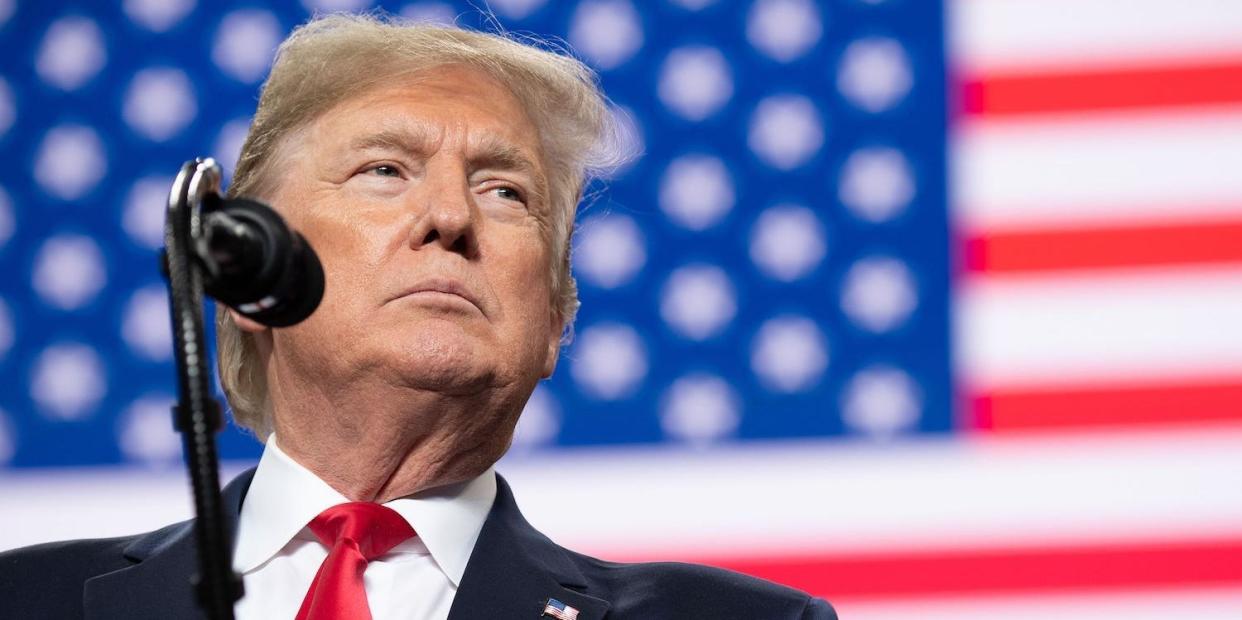'This was his state of mind': Impeachment manager highlights Trump's 'pattern and practice' of inciting violence before the Capitol siege

Impeachment manager Jamie Raskin emphasized Trump's "pattern and practice" of inciting violence.
Raskin cited the Charlottesville riot, the Michigan statehouse siege, and the kidnapping plot against Gov. Whitmer.
The Capitol siege was not an "aberration" because "this was his state of mind," Raskin said.
House impeachment managers on Thursday drove home a key point in their case against former President Donald Trump: the January 6 Capitol siege was not an aberration but part of a broader pattern of inciting violence.
Trump "galvanized, encouraged, and electrified" his "extremist followers" even before the deadly insurrection, said Rep. Jamie Raskin, the lead impeachment manager. He added: "These tactics were road-tested."
Raskin then cited several instances in which Trump's "words successfully incited his supporters into assaulting his opponents" or praised violence:
At one rally, Trump said of a protester, "Get 'em the hell out of here, get 'em out, throw 'em out."
At another, Trump said, "If you see somebody getting ready to throw a tomato, knock the crap out of them, would you?" He added: "I promise you, I will pay for the legal fees, I promise."
Trump praised then-Montana gubernatorial candidate Greg Gianforte after he assaulted a reporter in May 2017. "Any guy that can do a body slam, he's my kind of guy," Trump said at a rally.
After the deadly "Unite The Right" rally in Charlottesville, Virginia, in August 2017, Trump said there was "blame on both sides" and that there were "very fine people on both sides."
Last year, Trump repeatedly targeted Michigan Gov. Gretchen Whitmer at rallies and on social media, saying she "doesn't have a clue" and calling on her to lift the COVID-19 lockdown measures she implemented to curb the spread of the virus.
On April 17, Trump tweeted out a call to "LIBERATE" Michigan, and less than two weeks later, his supporters stormed the state's capitol.
'This was his state of mind. This was his essential MO.'
Raskin highlighted the siege of the Michigan statehouse as "a state-level dress rehearsal for the siege of the US Capitol," adding, "It was a preview of the coming insurrection."
Even after the FBI foiled a right-wing extremist plot to kidnap and execute Whitmer, Trump refused to condemn the assassination attempt, Raskin said. Instead, he "further inflamed" extremists "by continuing to attack the governor who was the object of their hatred in this kidnapping conspiracy."
"Time after time, he encouraged violence, his supporters listened and they got the message," Raskin said.
In the aftermath of the Capitol siege, meanwhile, Trump refused to take responsibility for what he said at a "Save America" rally preceding the insurrection. He said his words were "totally appropriate."
"There the pattern is, staring us in the face," Raskin said. "Meaning that, of course, given the chance, he would do it again because why would he not engage in totally appropriate conduct? An examination of his past statements makes it clear that when Donald Trump tells a crowd as he did on January 6, 'Fight like hell or you won't have a country anymore,' he meant for them to fight like hell."
"These prior acts of incitement cast a harsh light on Trump's obvious intent" and "unavoidable knowledge of the consequences of his incitement, and the clear foreseeability of the violent harm that he unleashed on our people and our republic," Raskin added. "January 6 was not some unexpected, radical break from his normal law-abiding and peaceful disposition. This was his state of mind. This was his essential MO."
Read the original article on Business Insider


